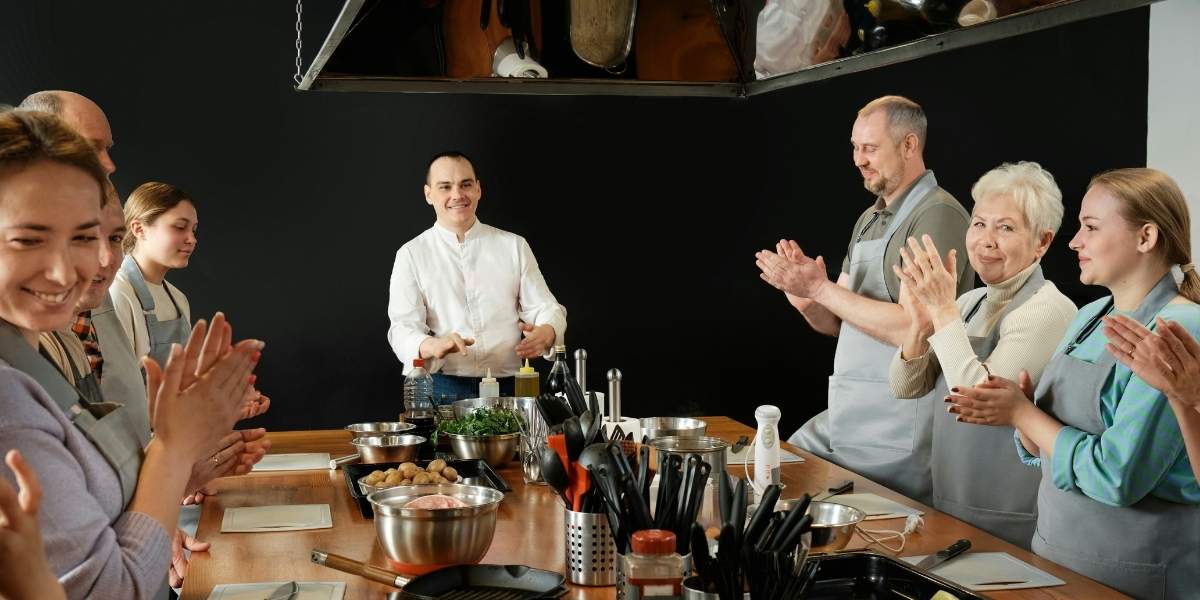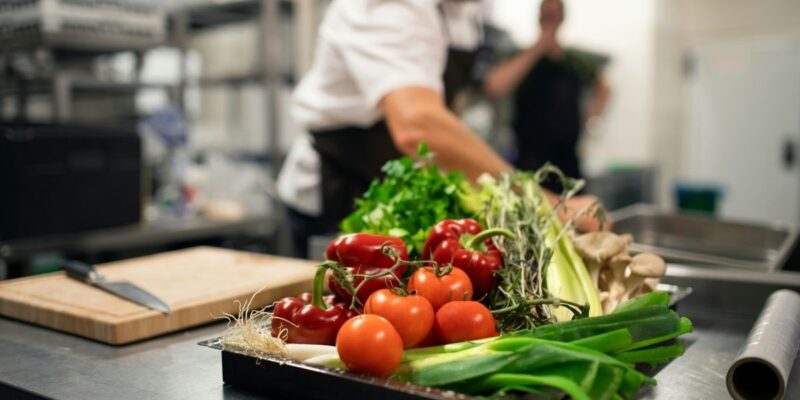Reality cooking competitions have rapidly gained popularity in recent years, captivating audiences with their exciting blend of culinary skills, fierce competition, and relatable personalities. These shows have become an essential part of television, offering a unique blend of entertainment and education. From amateur cooks to seasoned chefs, these programs have proven that food and competition can make for a compelling watch. But why has this genre exploded in popularity, and what makes these shows so engaging?
Read also: Celebrity Hobbies: Creative Outlets Outside the Spotlight
Why Are Reality Cooking Competitions So Popular?
The rise of reality cooking competitions can be attributed to the growing fascination with food culture and the increasing presence of food in everyday life. People today are more interested in what goes into their meals, how they are prepared, and the creative processes behind cooking. Cooking competitions allow viewers to explore these elements in an entertaining way, all while seeing skilled chefs push their boundaries in the kitchen.
As food-focused media, from cookbooks to online recipes, have surged in popularity, cooking competitions tap into this culture by offering both an educational and competitive twist. These shows bring food into the spotlight in a way that engages viewers’ imaginations. Instead of merely cooking, contestants face challenges that test their technical skills, creativity, and ability to perform under pressure. The combination of these factors makes reality cooking competitions both informative and thrilling.
How Do Reality Cooking Competitions Engage Viewers?

One of the biggest draws of these shows is the direct connection they create between the contestants and the viewers. Watching home cooks or professional chefs navigate tricky challenges can feel like a shared experience, especially when the audience gets to see the ups and downs of the competition. Whether it’s a dish that turns out perfectly or one that falls apart, the viewers are along for the ride.
Another aspect that makes these shows engaging is the structure of the competitions themselves. They often feature timed challenges, high-pressure situations, and the added tension of elimination rounds, which keeps viewers on the edge of their seats. The unpredictability of the outcomes and the tension that builds as contestants race against time is a major factor in their popularity.
Additionally, many cooking competition shows emphasize storytelling, giving contestants backstories that humanize them and make it easier for the audience to relate. Viewers get invested not only in the cooking but also in the personalities and lives of the contestants. This connection boosts emotional investment and can make the outcome of the competition feel more impactful.
What Makes Cooking Competitions Different From Other Reality Shows?
Cooking competitions stand out from other reality TV formats because they combine skill-based challenges with creativity and artistry. Unlike reality shows that focus on physical challenges, cooking competitions demand intellectual prowess, technical expertise, and a strong understanding of ingredients and techniques. This sets them apart from other reality shows like dating competitions or survival challenges, where strategy and physical strength are usually the main focus.
Moreover, cooking competitions highlight a universal aspect of human life: food. No matter where someone is from or what their cultural background is, everyone eats. The idea of transforming raw ingredients into something delicious and beautiful is a concept people from all walks of life can appreciate. This common ground allows cooking competition shows to have broad, global appeal.
How Do Cooking Competitions Influence Viewers?
Reality cooking competitions have a profound impact on viewers, influencing both their culinary habits and perceptions of food. One of the most significant effects is how these shows inspire viewers to try new dishes, experiment with different cooking methods, or even take up cooking as a hobby. By showcasing diverse cooking techniques and unique recipes, these programs encourage their audience to step out of their comfort zones and explore the world of food in exciting ways.
In addition to sparking culinary creativity, these shows also promote an appreciation for the skill and artistry involved in professional cooking. They shed light on the technical aspects of cooking that go beyond basic meal prep, such as plating, seasoning, and balancing flavors. Viewers often find themselves learning something new, whether it’s a new method of cooking or a cooking tip they can use at home.
The impact of cooking competitions extends beyond just the food. They have also influenced food culture at large by raising awareness about global cuisines, trends, and ingredients. As chefs and home cooks showcase international dishes, viewers are introduced to flavors and cooking styles they may never have encountered otherwise. This broadens their culinary horizons and fosters a greater appreciation for food from different cultures.
What Role Do Judges Play in Cooking Competitions?
The judges in cooking competitions are often just as important as the contestants themselves. Their critiques, feedback, and personalities shape the course of the competition. While the contestants are busy preparing their dishes, it’s the judges who offer the authority that viewers look to for validation. Their expertise not only provides insight into the dishes being prepared but also adds credibility to the competition as a whole.
Judges also help in building drama and suspense, particularly when they’re faced with difficult decisions during elimination rounds. Their reactions to a contestant’s dish, whether positive or negative, can be as engaging as the competition itself. Viewers become invested not just in the contestants but also in the judgments that will determine their fates, creating a sense of excitement and anticipation throughout the show.
Read also: The Rise of TV Series in Mainstream Entertainment
How Has the Global Appeal of Cooking Competitions Grown?

The global appeal of cooking competitions has been remarkable. What started as a niche interest has turned into a worldwide phenomenon. International shows have garnered massive followings, with viewers tuning in from all over the world to watch amateur bakers create mouthwatering treats. Similarly, other cooking shows have adapted to local tastes, making their way onto global streaming platforms and winning audiences in different countries.
This global reach shows just how universal the concept of food and cooking is. No matter the location or language, the act of preparing a meal is something people can connect with. In some countries, these competitions even give rise to local versions of popular international shows, bringing a fresh perspective to familiar formats.
Reality cooking competitions are here to stay, and their rise in popularity only seems to be increasing. By combining skill, creativity, and universal appeal, these shows have carved out a significant space in the world of television. Whether viewers are tuning in to learn new recipes, appreciate cooking as an art form, or simply be entertained, the world of reality cooking competitions offers something for everyone.









